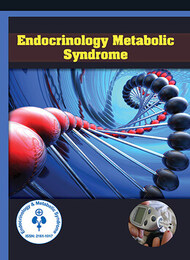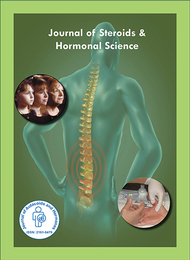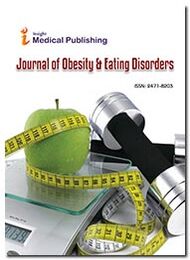Theme: Exploring the impact of Hormonal Disorders
Renowned Speakers
HORMONES 2024
Conference Series is pleasure to invite you to participate in 3rd International Summit on Hormonal Disorders to be held during November 18-19, 2024 in Paris, France. Participants are encouraged to focus on the theme, "Exploring the impact of Hormonal Disorders". These events will serve as a platform for exchanging knowledge, advancements, and ideas in the Subject of Hormones, offering opportunities to learn about effective ways to improve healthcare outcomes and enhance medical technology.
THE HORMONES 2024 is designed for Endocrinologists, Diabetologists, Reproductive Endocrinologists, Surgeons, Physicians, Health Care Professionals, Professors, Medical Directors, and students actively engaged in this field. The conference will feature prompt keynote presentations, oral talks, poster presentations, video presentations, exhibitions, symposiums, workshops, and a Young Researcher’s Forum focusing on the latest treatments and innovative methods for Hormonal Disorders.
The conference is expected to cover a diverse range of topics, including new surgical techniques to treat the Disorders, technological advances, research findings, case studies, and discussions on healthcare policy. The primary objective is to bring together individuals sharing a common interest in this subject, facilitating the exchange of knowledge, ideas, and fostering collaboration in the field.
Track 01: Diabetes Mellitus
Diabetes mellitus is a chronic metabolic disorder characterized by high levels of glucose (sugar) in the blood. It occurs when the body either does not produce enough insulin or cannot effectively use the insulin it produces. Insulin is a hormone produced by the pancreas that helps regulate blood sugar levels and facilitates the uptake of glucose into cells for energy.
Related Conferences: Hormones 2024 | Endocrine Factors Congress | Hormonal Disorders Conferences | Scientific Conferences on Hormones | Metabolic Regulators 2024 | Endocrinology 2024 | Hormones summit 2024 | Diabetes Conferences 2024 | Hormone regulation Events | Chemical MessengersConferences 2024 | Hormonal imbalances
American Association of Clinical Endocrinology (AACE) | International Society of Pediatric and Adolescent Diabetes (ISPAD) | Canadian Society of Endocrinology and Metabolism | Cushing's Support and Research Foundation (CSRF) | Addison's Disease Self-Help Group (ADSHG) (UK) | German Society of Endocrinology (DGE) | American Diabetes Association (ADA) | The Pituitary Society(USA)
Track 02: Type 1 Diabetes
This autoimmune condition occurs when the immune system mistakenly attacks and destroys the insulin-producing beta cells in the pancreas. As a result, the pancreas produces little to no insulin. Type 1 diabetes typically develops in childhood or adolescence, although it can occur at any age. People with type 1 diabetes require lifelong insulin therapy to manage their blood sugar levels.
In type 2 diabetes, the body becomes resistant to the effects of insulin or the pancreas does not produce enough insulin to meet the body's needs. This leads to elevated blood sugar levels. Type 2 diabetes is more common than type 1 and is often associated with lifestyle factors such as obesity, physical inactivity, and poor diet. It typically develops in adults, but increasingly affects children and adolescents due to rising obesity rates. Type 2 diabetes can often be managed with lifestyle modifications, oral medications, and/or insulin therapy.
Related Conferences: Hormones 2024 | Endocrine Factors Congress | Hormonal Disorders Conferences | Scientific Conferences on Hormones | Metabolic Regulators 2024 | Endocrinology 2024 | Hormones summit 2024 | Diabetes Conferences 2024 | Hormone regulation Events | Chemical MessengersConferences 2024 | Hormonal imbalances
American Association of Clinical Endocrinology (AACE) | International Society of Pediatric and Adolescent Diabetes (ISPAD) | Canadian Society of Endocrinology and Metabolism | Cushing's Support and Research Foundation (CSRF) | Addison's Disease Self-Help Group (ADSHG) (UK) | German Society of Endocrinology (DGE) | American Diabetes Association (ADA) | The Pituitary Society(USA)
Track 03: Gestational Diabetes
This type of diabetes occurs during pregnancy and usually resolves after childbirth. It is characterized by high blood sugar levels that develop during pregnancy in women who did not have diabetes before pregnancy. Gestational diabetes increases the risk of complications during pregnancy and delivery and may also increase the risk of type 2 diabetes later in life for both the mother and child.
Related Conferences: Hormones 2024 | Endocrine Factors Congress | Hormonal Disorders Conferences | Scientific Conferences on Hormones | Metabolic Regulators 2024 | Endocrinology 2024 | Hormones summit 2024 | Diabetes Conferences 2024 | Hormone regulation Events | Chemical MessengersConferences 2024 | Hormonal imbalances
American Association of Clinical Endocrinology (AACE) | International Society of Pediatric and Adolescent Diabetes (ISPAD) | Canadian Society of Endocrinology and Metabolism | Cushing's Support and Research Foundation (CSRF) | Addison's Disease Self-Help Group (ADSHG) (UK) | German Society of Endocrinology (DGE) | American Diabetes Association (ADA) | The Pituitary Society(USA)
Track 04: Hypothyroidism
Hypothyroidism is a common Hormonal disorder characterized by an underactive thyroid gland, which fails to produce enough thyroid hormone to meet the body's needs. Causes of hypothyroidism include autoimmune thyroiditis (Hashimoto's thyroiditis), thyroid surgery or radiation therapy, certain medications, congenital thyroid defects, and iodine deficiency. Symptoms of hypothyroidism can vary widely but may include fatigue, weight gain, sensitivity to cold, dry skin, hair loss, constipation, depression, muscle weakness, joint pain, and menstrual irregularities in women.
Related Conferences: Hormones 2024 | Endocrine Factors Congress | Hormonal Disorders Conferences | Scientific Conferences on Hormones | Metabolic Regulators 2024 | Endocrinology 2024 | Hormones summit 2024 | Diabetes Conferences 2024 | Hormone regulation Events | Chemical MessengersConferences 2024 | Hormonal imbalances
American Association of Clinical Endocrinology (AACE) | International Society of Pediatric and Adolescent Diabetes (ISPAD) | Canadian Society of Endocrinology and Metabolism | Cushing's Support and Research Foundation (CSRF) | Addison's Disease Self-Help Group (ADSHG) (UK) | German Society of Endocrinology (DGE) | American Diabetes Association (ADA) | The Pituitary Society(USA)
Track 05: Thyrotoxicosis
Thyrotoxicosis is a common endocrine disorder characterized by an overactive thyroid gland, leading to excessive production of thyroid hormones. The most common cause of hyperthyroidism is an autoimmune condition known as Graves' disease, where the body's immune system mistakenly attacks the thyroid gland, causing it to produce too much thyroid hormone. Symptoms of hyperthyroidism may include weight loss, increased appetite, rapid heartbeat (tachycardia), palpitations, sweating, heat intolerance, tremors, anxiety, irritability, fatigue, muscle weakness, and changes in menstrual patterns.
Related Conferences: Hormones 2024 | Endocrine Factors Congress | Hormonal Disorders Conferences | Scientific Conferences on Hormones | Metabolic Regulators 2024 | Endocrinology 2024 | Hormones summit 2024 | Diabetes Conferences 2024 | Hormone regulation Events | Chemical MessengersConferences 2024 | Hormonal imbalances
American Association of Clinical Endocrinology (AACE) | International Society of Pediatric and Adolescent Diabetes (ISPAD) | Canadian Society of Endocrinology and Metabolism | Cushing's Support and Research Foundation (CSRF) | Addison's Disease Self-Help Group (ADSHG) (UK) | German Society of Endocrinology (DGE) | American Diabetes Association (ADA) | The Pituitary Society(USA)
Track 06: Thyroid Nodules
Thyroid nodules are lumps or growths that develop within the thyroid gland. Most thyroid nodules are benign (non-cancerous) and do not cause symptoms. While the majority of thyroid nodules are harmless, some may cause symptoms such as difficulty swallowing, hoarseness, or visible neck swelling. Diagnosis of thyroid nodules typically involves imaging tests such as ultrasound, along with fine-needle aspiration biopsy to determine whether the nodule is benign or cancerous.
Related Conferences: Hormones 2024 | Endocrine Factors Congress | Hormonal Disorders Conferences | Scientific Conferences on Hormones | Metabolic Regulators 2024 | Endocrinology 2024 | Hormones summit 2024 | Diabetes Conferences 2024 | Hormone regulation Events | Chemical MessengersConferences 2024 | Hormonal imbalances
American Association of Clinical Endocrinology (AACE) | International Society of Pediatric and Adolescent Diabetes (ISPAD) | Canadian Society of Endocrinology and Metabolism | Cushing's Support and Research Foundation (CSRF) | Addison's Disease Self-Help Group (ADSHG) (UK) | German Society of Endocrinology (DGE) | American Diabetes Association (ADA) | The Pituitary Society(USA)
Track 07: Goiter
Goiter refers to the abnormal enlargement of the thyroid gland, causing swelling or protrusion in the neck. It can occur due to various reasons, including iodine deficiency, autoimmune thyroiditis (such as Hashimoto's thyroiditis), or the presence of thyroid nodules. Symptoms of goiter may include a visible swelling in the neck, difficulty swallowing or breathing, coughing, or hoarseness. Diagnosis of goiter involves physical examination, imaging tests (such as ultrasound), and blood tests to evaluate thyroid function and rule out underlying causes.
Related Conferences: Hormones 2024 | Endocrine Factors Congress | Hormonal Disorders Conferences | Scientific Conferences on Hormones | Metabolic Regulators 2024 | Endocrinology 2024 | Hormones summit 2024 | Diabetes Conferences 2024 | Hormone regulation Events | Chemical MessengersConferences 2024 | Hormonal imbalances
American Association of Clinical Endocrinology (AACE) | International Society of Pediatric and Adolescent Diabetes (ISPAD) | Canadian Society of Endocrinology and Metabolism | Cushing's Support and Research Foundation (CSRF) | Addison's Disease Self-Help Group (ADSHG) (UK) | German Society of Endocrinology (DGE) | American Diabetes Association (ADA) | The Pituitary Society(USA)
Track 08: Cushing's syndrome
Cushing's syndrome is a hormonal disorder characterized by prolonged exposure to high levels of cortisol, a steroid hormone produced by the adrenal glands. There are several possible causes of Cushing's syndrome, including This can occur due to adrenal tumors such as carcinomas that produce excess cortisol independent of normal regulatory mechanisms. Most cases of Cushing's syndrome result from overproduction of adrenocorticotropic hormone (ACTH) by a benign tumor (adenoma) in the pituitary gland. This tumor causes the adrenal glands to produce excess cortisol. In rare cases, tumors outside the pituitary or adrenal glands, such as in the lungs or pancreas, can produce ACTH, leading to increased cortisol production.
Related Conferences: Hormones 2024 | Endocrine Factors Congress | Hormonal Disorders Conferences | Scientific Conferences on Hormones | Metabolic Regulators 2024 | Endocrinology 2024 | Hormones summit 2024 | Diabetes Conferences 2024 | Hormone regulation Events | Chemical MessengersConferences 2024 | Hormonal imbalances
American Association of Clinical Endocrinology (AACE) | International Society of Pediatric and Adolescent Diabetes (ISPAD) | Canadian Society of Endocrinology and Metabolism | Cushing's Support and Research Foundation (CSRF) | Addison's Disease Self-Help Group (ADSHG) (UK) | German Society of Endocrinology (DGE) | American Diabetes Association (ADA) | The Pituitary Society(USA)
Track 09: Addison's Disease
Addison's disease, also known as primary adrenal insufficiency, is a rare but serious endocrine disorder characterized by insufficient production of hormones by the adrenal glands. The most common cause of Addison's disease is autoimmune destruction of the adrenal cortex. Symptoms of disease can be nonspecific and may include decreased appetite, abdominal pain, nausea, vomiting, diarrhea, hypotension, dizziness, salt craving, hyperpigmentation , and changes in mood or behavior.
Related Conferences: Hormones 2024 | Endocrine Factors Congress | Hormonal Disorders Conferences | Scientific Conferences on Hormones | Metabolic Regulators 2024 | Endocrinology 2024 | Hormones summit 2024 | Diabetes Conferences 2024 | Hormone regulation Events | Chemical MessengersConferences 2024 | Hormonal imbalances
American Association of Clinical Endocrinology (AACE) | International Society of Pediatric and Adolescent Diabetes (ISPAD) | Canadian Society of Endocrinology and Metabolism | Cushing's Support and Research Foundation (CSRF) | Addison's Disease Self-Help Group (ADSHG) (UK) | German Society of Endocrinology (DGE) | American Diabetes Association (ADA) | The Pituitary Society(USA)
Track 10: Polycystic ovary syndrome (PCOS)
Polycystic ovary syndrome (PCOS) is a common hormonal disorder affecting people with ovaries, typically during their reproductive years. PCOS is characterized by a combination of symptoms related to hormonal imbalances and metabolic issues.The cause of PCOS is involves a combination of genetic, hormonal, and environmental factors.Symptoms of PCOS can vary widely among individuals and may include irregular periods, infertility, weight gain, acne, hirsutism, hair loss, and mood disturbances
Diagnosis of PCOS typically involves a combination of medical history, physical examination, blood tests to assess hormone levels (including androgens and insulin), and imaging studies such as pelvic ultrasound to evaluate the ovaries.
Related Conferences: Hormones 2024 | Endocrine Factors Congress | Hormonal Disorders Conferences | Scientific Conferences on Hormones | Metabolic Regulators 2024 | Endocrinology 2024 | Hormones summit 2024 | Diabetes Conferences 2024 | Hormone regulation Events | Chemical MessengersConferences 2024 | Hormonal imbalances
American Association of Clinical Endocrinology (AACE) | International Society of Pediatric and Adolescent Diabetes (ISPAD) | Canadian Society of Endocrinology and Metabolism | Cushing's Support and Research Foundation (CSRF) | Addison's Disease Self-Help Group (ADSHG) (UK) | German Society of Endocrinology (DGE) | American Diabetes Association (ADA) | The Pituitary Society(USA)
Track 11: Growth hormone deficiency
Growth hormone deficiency (GHD) is a medical condition characterized by insufficient production of growth hormone (GH) by the pituitary gland. Growth hormone deficiency can occur at any age, but it is most commonly diagnosed in childhood when it can lead to short stature and growth failure. In adults, GHD can cause a range of symptoms, including decreased muscle mass, increased body fat, fatigue, decreased bone density, impaired cognitive function, and reduced quality of life.
Related Conferences: Hormones 2024 | Endocrine Factors Congress | Hormonal Disorders Conferences | Scientific Conferences on Hormones | Metabolic Regulators 2024 | Endocrinology 2024 | Hormones summit 2024 | Diabetes Conferences 2024 | Hormone regulation Events | Chemical MessengersConferences 2024 | Hormonal imbalances
American Association of Clinical Endocrinology (AACE) | International Society of Pediatric and Adolescent Diabetes (ISPAD) | Canadian Society of Endocrinology and Metabolism | Cushing's Support and Research Foundation (CSRF) | Addison's Disease Self-Help Group (ADSHG) (UK) | German Society of Endocrinology (DGE) | American Diabetes Association (ADA) | The Pituitary Society(USA)
Track 12: Menopause
Menopause is a natural biological process marking the end of a woman's reproductive years, typically occurring between the ages of 45 and 55. It is defined as the absence of menstrual periods for 12 consecutive months and signifies the end of ovarian function and hormone production, particularly estrogen and progesterone.Common symptoms include hot flashes, night sweats, mood swings, vaginal dryness, and changes in sexual desire.Menopause can impact bone health, increasing the risk of osteoporosis due to lower estrogen levels. Cardiovascular health may also be affected, necessitating lifestyle changes and sometimes medical intervention.
Related Conferences: Hormones 2024 | Endocrine Factors Congress | Hormonal Disorders Conferences | Scientific Conferences on Hormones | Metabolic Regulators 2024 | Endocrinology 2024 | Hormones summit 2024 | Diabetes Conferences 2024 | Hormone regulation Events | Chemical MessengersConferences 2024 | Hormonal imbalances
American Association of Clinical Endocrinology (AACE) | International Society of Pediatric and Adolescent Diabetes (ISPAD) | Canadian Society of Endocrinology and Metabolism | Cushing's Support and Research Foundation (CSRF) | Addison's Disease Self-Help Group (ADSHG) (UK) | German Society of Endocrinology (DGE) | American Diabetes Association (ADA) | The Pituitary Society(USA)
Track 13: Hyperparathyroidism
Hyperparathyroidism is a condition characterized by over activity of the parathyroid glands, leading to excessive production of parathyroid hormone (PTH). In hyperparathyroidism, elevated levels of PTH cause an increase in calcium levels in the blood (hypercalcemia). This can lead to a variety of symptoms and complications, including, Bone loss, Digestive issues, Cognitive changes, Cardiovascular complications. Diagnosis of hyperparathyroidism involves blood tests to measure calcium and PTH levels, as well as imaging studies such as ultrasound or sestamibi scan to locate any abnormal parathyroid glands.
Related Conferences: Hormones 2024 | Endocrine Factors Congress | Hormonal Disorders Conferences | Scientific Conferences on Hormones | Metabolic Regulators 2024 | Endocrinology 2024 | Hormones summit 2024 | Diabetes Conferences 2024 | Hormone regulation Events | Chemical MessengersConferences 2024 | Hormonal imbalances
American Association of Clinical Endocrinology (AACE) | International Society of Pediatric and Adolescent Diabetes (ISPAD) | Canadian Society of Endocrinology and Metabolism | Cushing's Support and Research Foundation (CSRF) | Addison's Disease Self-Help Group (ADSHG) (UK) | German Society of Endocrinology (DGE) | American Diabetes Association (ADA) | The Pituitary Society(USA)
Track 14: Hypoparathyroidism
Hypoparathyroidism is a rare endocrine disorder characterized by insufficient production or activity of parathyroid hormone (PTH), resulting in low levels of calcium in the blood (hypocalcemia) and high levels of phosphate. Common causes of hypoparathyroidism include surgical removal of the parathyroid glands (such as during thyroid surgery), autoimmune destruction of the parathyroid glands (as in autoimmune polyendocrine syndrome), genetic disorders (such as DiGeorge syndrome), or injury to the parathyroid glands.
Related Conferences: Hormones 2024 | Endocrine Factors Congress | Hormonal Disorders Conferences | Scientific Conferences on Hormones | Metabolic Regulators 2024 | Endocrinology 2024 | Hormones summit 2024 | Diabetes Conferences 2024 | Hormone regulation Events | Chemical MessengersConferences 2024 | Hormonal imbalances
American Association of Clinical Endocrinology (AACE) | International Society of Pediatric and Adolescent Diabetes (ISPAD) | Canadian Society of Endocrinology and Metabolism | Cushing's Support and Research Foundation (CSRF) | Addison's Disease Self-Help Group (ADSHG) (UK) | German Society of Endocrinology (DGE) | American Diabetes Association (ADA) | The Pituitary Society(USA)
Track 15: Pituitary Adenomas
Pituitary adenomas are benign tumors that develop in the pituitary gland, a small gland located at the base of the brain. Despite being non-cancerous, pituitary adenomas can cause hormonal imbalances and disrupt normal pituitary function due to their size and location. Diagnosis of pituitary adenomas involves a combination of imaging studies, such as MRI or CT scans, to visualize the tumor, along with hormonal tests to assess hormone levels and identify any hormonal imbalances.
Related Conferences: Hormones 2024 | Endocrine Factors Congress | Hormonal Disorders Conferences | Scientific Conferences on Hormones | Metabolic Regulators 2024 | Endocrinology 2024 | Hormones summit 2024 | Diabetes Conferences 2024 | Hormone regulation Events | Chemical MessengersConferences 2024 | Hormonal imbalances
American Association of Clinical Endocrinology (AACE) | International Society of Pediatric and Adolescent Diabetes (ISPAD) | Canadian Society of Endocrinology and Metabolism | Cushing's Support and Research Foundation (CSRF) | Addison's Disease Self-Help Group (ADSHG) (UK) | German Society of Endocrinology (DGE) | American Diabetes Association (ADA) | The Pituitary Society(USA)
Track 16: Hypopituitarism
Hypopituitarism is a condition characterized by underactivity of the pituitary gland, resulting in insufficient production of one or more hormones normally secreted by the gland. The pituitary gland, often referred to as the "master gland," plays a crucial role in regulating hormone production and controlling various bodily functions. Causes of hypopituitarism can vary and may include: Pituitary tumors, Pituitary surgery or radiation therapy, Trauma, Infections or inflammation, Genetic factors, Hypopituitarism can affect multiple hormone axes controlled by the pituitary gland, leading to a wide range of symptoms depending on which hormones are deficient.
Related Conferences: Hormones 2024 | Endocrine Factors Congress | Hormonal Disorders Conferences | Scientific Conferences on Hormones | Metabolic Regulators 2024 | Endocrinology 2024 | Hormones summit 2024 | Diabetes Conferences 2024 | Hormone regulation Events | Chemical MessengersConferences 2024 | Hormonal imbalances
American Association of Clinical Endocrinology (AACE) | International Society of Pediatric and Adolescent Diabetes (ISPAD) | Canadian Society of Endocrinology and Metabolism | Cushing's Support and Research Foundation (CSRF) | Addison's Disease Self-Help Group (ADSHG) (UK) | German Society of Endocrinology (DGE) | American Diabetes Association (ADA) | The Pituitary Society(USA)
Track 17: Andropause
Andropause refers to the gradual decline in testosterone levels experienced by some men as they age, typically beginning around the age of 40 to 50. This condition is often compared to menopause in women but differs in its onset and symptoms. The symptoms, including reduced libido, erectile dysfunction, fatigue, decreased muscle mass, mood changes (such as irritability or depression), and difficulty concentrating.Unlike the sudden drop in hormones seen in menopause, testosterone levels decline more gradually in andropause. This gradual decline can sometimes make the condition less noticeable or harder to diagnose.Lower testosterone levels can impact various aspects of health, including bone density, muscle strength, and overall well-being. It may also increase the risk of cardiovascular issues.
Hormones 2024 | Endocrine Factors Congress | Hormonal Disorders Conferences | Scientific Conferences on Hormones | Metabolic Regulators 2024 | Endocrinology 2024 | Hormones summit 2024 | Diabetes Conferences 2024 | Hormone regulation Events | Chemical MessengersConferences 2024 | Hormonal imbalances
American Association of Clinical Endocrinology (AACE) | International Society of Pediatric and Adolescent Diabetes (ISPAD) | Canadian Society of Endocrinology and Metabolism | Cushing's Support and Research Foundation (CSRF) | Addison's Disease Self-Help Group (ADSHG) (UK) | German Society of Endocrinology (DGE) | American Diabetes Association (ADA) | The Pituitary Society(USA)
Track 18: Premenstrual Syndrome (PMS)
Premenstrual Syndrome (PMS) is a collection of physical and emotional symptoms that occur in the luteal phase of the menstrual cycle, typically starting about one to two weeks before menstruation and subsiding with the onset of the period.symptoms vary but commonly include mood swings, irritability, fatigue, bloating, breast tenderness, headaches, and changes in appetite. Emotional symptoms can range from anxiety and depression to irritability and mood swings. PMS can affect daily functioning and quality of life. If symptoms are severe or debilitating, it may be indicative of a more serious condition, such as Premenstrual Dysphoric Disorder (PMDD), which requires more intensive treatment.
Hormones 2024 | Endocrine Factors Congress | Hormonal Disorders Conferences | Scientific Conferences on Hormones | Metabolic Regulators 2024 | Endocrinology 2024 | Hormones summit 2024 | Diabetes Conferences 2024 | Hormone regulation Events | Chemical MessengersConferences 2024 | Hormonal imbalances
American Association of Clinical Endocrinology (AACE) | International Society of Pediatric and Adolescent Diabetes (ISPAD) | Canadian Society of Endocrinology and Metabolism | Cushing's Support and Research Foundation (CSRF) | Addison's Disease Self-Help Group (ADSHG) (UK) | German Society of Endocrinology (DGE) | American Diabetes Association (ADA) | The Pituitary Society(USA)
Track 19: Plants Hormonal Disorders
Plants, like animals, can experience hormonal disorders that affect their growth, development, and overall health. These disorders often result from imbalances or disruptions in the levels of plant hormones, also known as phytohormones, such as auxins, gibberellins, cytokinins, ethylene, and abscisic acid. Causes of hormonal disorders in plants can include genetic mutations, environmental stressors like drought or extreme temperatures, pathogen infections, and chemical exposures. Symptoms of these disorders can manifest as abnormal growth patterns, poor seed development, reduced flowering, leaf yellowing, or premature leaf drop. Managing plant hormonal disorders typically involves correcting the underlying environmental conditions, using hormone treatments, or breeding for resistant plant varieties.
Hormones 2024 | Endocrine Factors Congress | Hormonal Disorders Conferences | Scientific Conferences on Hormones | Metabolic Regulators 2024 | Endocrinology 2024 | Hormones summit 2024 | Diabetes Conferences 2024 | Hormone regulation Events | Chemical MessengersConferences 2024 | Hormonal imbalances
American Association of Clinical Endocrinology (AACE) | International Society of Pediatric and Adolescent Diabetes (ISPAD) | Canadian Society of Endocrinology and Metabolism | Cushing's Support and Research Foundation (CSRF) | Addison's Disease Self-Help Group (ADSHG) (UK) | German Society of Endocrinology (DGE) | American Diabetes Association (ADA) | The Pituitary Society(USA)
Track 20: Animal Hormonal Disorders
Animal hormonal disorders occur when there are imbalances in the production, release, or function of hormones, which are critical for regulating numerous physiological processes. These disorders can stem from issues in endocrine glands such as the thyroid, pancreas, adrenal glands, and pituitary gland. Common hormonal disorders in animals include diabetes, hypothyroidism, hyperthyroidism, Cushing's disease, and Addison's disease. Symptoms vary widely depending on the specific disorder and can include weight changes, lethargy, excessive thirst, skin problems, and behavioral changes. Diagnosis and treatment often involve blood tests to measure hormone levels, along with hormone replacement therapy, medication, dietary adjustments, and lifestyle changes to manage the condition.
Why to Attend:
Our conference boasts a well-balanced lineup of speakers, addressing both broad and specific topics of interest. We aim to provide surgeons, specialists, nurses, technologists, and all professionals involved in the subject of Hormonal Disorders with an opportunity to delve into the complexity of diseases, discuss interventional procedures, explore new and advanced surgical practices, assess their efficiency and efficacy in treating various cases, and grasp local realities and practical constraints in improving patient care.
The Hormonal Disorders 2024 will be organized around the theme "Hormonal Disorders: Unraveling the Complexity" and will consist of 17 tracks designed to offer comprehensive sessions that explore the various Disorders within the Topic. This presents an exceptional opportunity to attract a significant number of participants, facilitating the sharing of information, data, and B2B meetings with industrialists and potential customers to showcase innovative products live and gain brand recognition at this event. Renowned speakers, the latest systems, and the most recent updates in Hormonal Disorders are key highlights of this conference. Additionally, it serves as a platform for a wide range of Doctors to interact with one another.
Targeted Audience:
Surgeons and Physicians
- Diabetologists
- Endocrinologists
- Cardiologists
- Reproductive Endocrinologists
- Pediatric Endocrinologists
- Clinical Laboratory Scientists
- Medical Practitioners
- Researchers and Academics
- Medical Students and Trainees
- International Delegates
- Medical Colleges, Universities
- Clinical Nurse Specialists
Benefits of speaker:
- Our conferences offer the best platform for presenting your research through oral presentations.
- Share your ideas with both eminent researchers and mentors.
- Winners of the Young Scientist Award receive a recognition certificate and a memento.
- We provide an opportunity for conference abstracts to be published in 10+10 additional languages, ensuring that each participant's abstract is published in their respective language.
- Stay updated on the latest advancements in surgical techniques, technologies, and research.
- Connect with fellow surgeons, specialists, and healthcare professionals.
- Build collaborations, share experiences, and exchange knowledge.
- Explore and learn about the latest surgical tools, equipment, and technologies.
The global market for endocrine disorders testing anticipated to reach $18.2 billion by 2029, growing at CAGR 6.9% over the forecast period, driven by increasing incidence of endocrine disorders such as diabetes, thyroid disorders, and infertility, as well as rising healthcare awareness among the population, growing elderly population, and technological advancements.
The global market for endocrine disorders testing research report is further segmented by geography into North America (U.S., Canada), Europe (U.K., Germany, France, Italy, Spain, Rest of EU), Asia Pacific (Japan, China, India, Rest of APAC), Latin America (Brazil, Mexico, Rest of LA), and Rest of the World.
Conference Highlights
- Addison's disease
- Diabetes mellitus
- Type 1 Diabetes
- Type 2 diabetes,
- Gestational Diabetes
- Hypothyroidism
- Thyrotoxicosis
- Thyroid nodules
- Polycystic ovary syndrome (PCOS)
- Goiter
- Cushing's syndrome
- Growth hormone deficiency
- Acromegaly
- Hyperparathyroidism
- Hypoparathyroidism
- Pituitary adenomas
- Hypopituitarism
To share your views and research, please click here to register for the Conference.
To Collaborate Scientific Professionals around the World
| Conference Date | November 18-19, 2024 | ||
| Sponsors & Exhibitors |
|
||
| Speaker Opportunity Closed | |||
| Poster Opportunity Closed | Click Here to View | ||
Useful Links
Special Issues
All accepted abstracts will be published in respective Our International Journals.
- Journal of Steroids & Hormonal Science
- Journal of Endocrinology & Metabolic Syndrome
- Journal Of Obesity & Eating Disorders
Abstracts will be provided with Digital Object Identifier by







